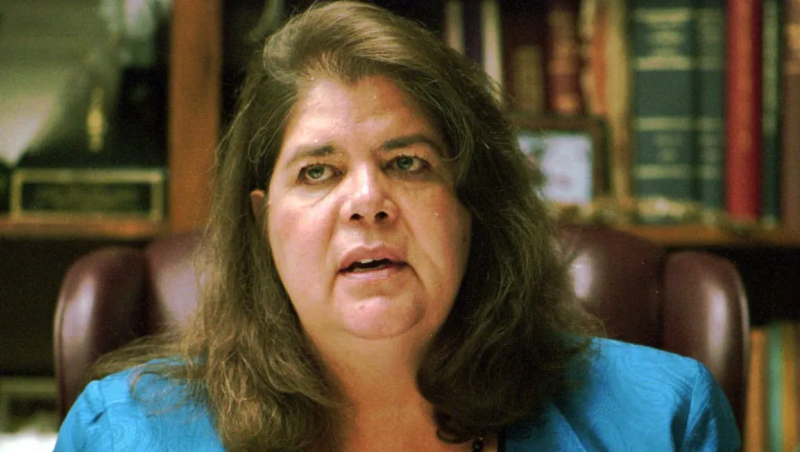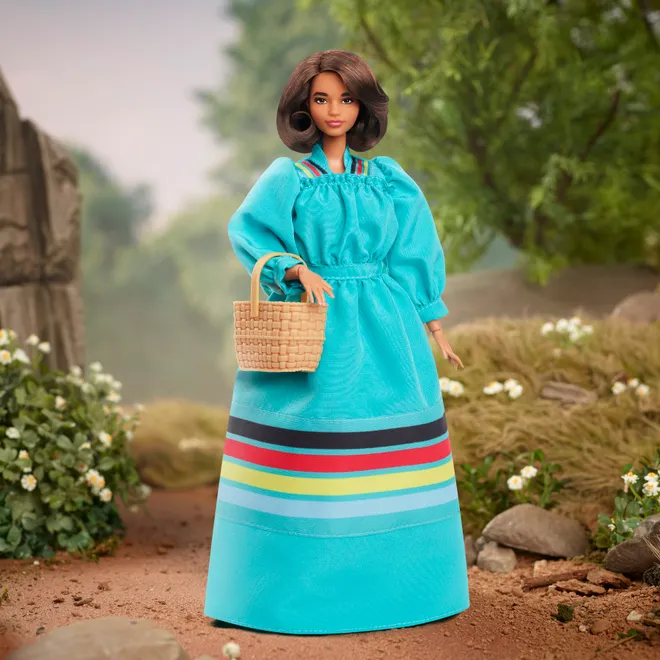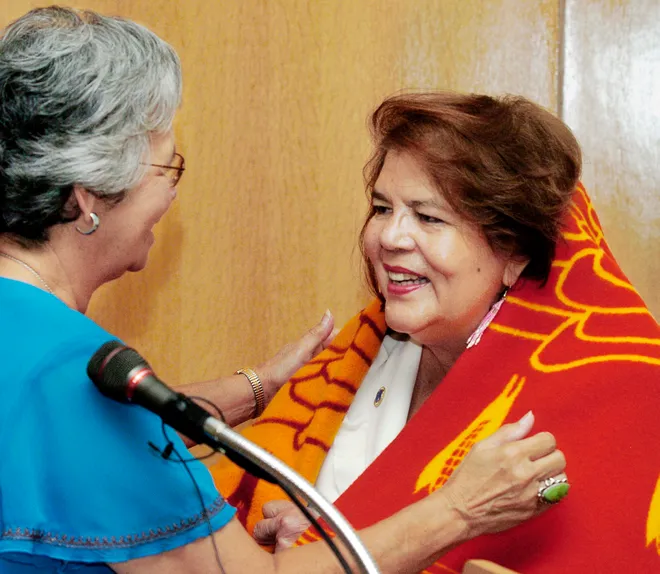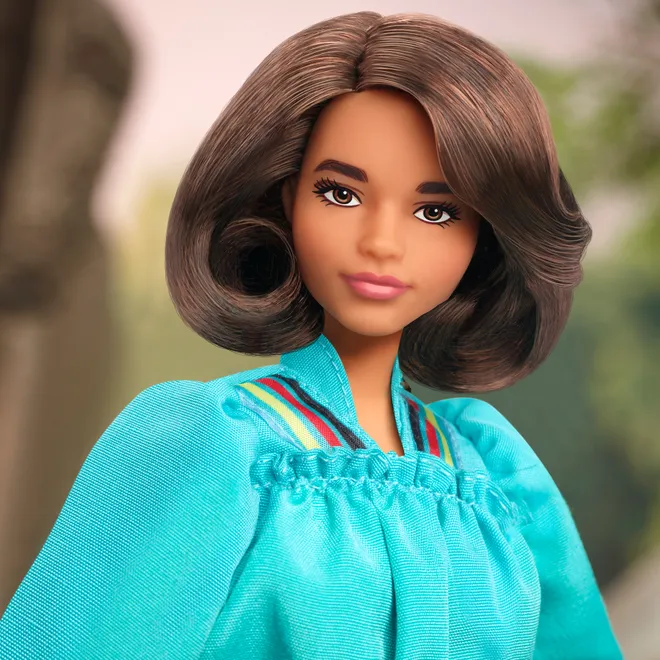New Barbie doll honors Wilma Mankiller, the first female Cherokee principal chief

OKLAHOMA CITY − The Cherokee Nation's first female principal chief is being honored with her very own Barbie doll.
The Wilma Mankiller doll is part of the Barbie "Inspiring Women" series and is now available for purchase.
Mankiller, who served as the principal chief from 1985 to 1995, revitalized the Cherokee Nation's tribal government, and advocated relentlessly for improved health care and housing services. Under her leadership, infant mortality declined, safe access to water grew and the Cherokee Nation's population doubled from 68,000 to 170,000.
For her work, Mankiller earned the Presidential Medal of Freedom in 1998.
"Wilma Mankiller has shown countless young women to be fearless and speak up for Indigenous and human rights. She not only served in a role dominated by men during a time when tribal nations were suppressed, but she led," said Cherokee Nation Principal Chief Chuck Hoskin Jr.
Who created Barbie?Get to know the history, facts of the iconic doll's origins

"She truly exemplifies leadership, culture and equality, and we applaud Mattel for commemorating her in the Barbie Inspiring Women Series.”
In addition to the doll's release, Barbie is donating $25,000 to The American Indian Resources Center, aimed at supporting initiatives dedicated to empowering Indigenous women and girls and fostering preservation, according to a news release.
World Kindness Day:Krispy Kreme wants to gift you a dozen donuts. No strings attached.
Who is Wilma Mankiller?
Born on Nov. 18, 1945, in Tahlequah, Oklahoma, Mankiller was the sixth of 11 children born to Charley Mankiller and Clara Irene Sitton, reports the National Women's History Museum.
When she was 11, the family moved to San Fransisco through a federal relocation program aimed at moving Native Americans from federally subsidized lands into larger cities with more job opportunities. In a 1993 interview with the New York Times, Mankiller described the move as “my own little Trail of Tears.”
In California, she first stepped into social activism when became involved in the 1969 Occupation of Alcatraz, a 19-month-long protest when 89 Native Americans and their supporters occupied Alcatraz Island.

In 1976, Mankiller returned to Oklahoma and worked for the Cherokee Nation as an economic stimulus coordinator, and by the early 1980s, she was directing the newly created Community Development Department of the Cherokee Nation.
Then-Principal Chief Ross Swimmer invited her to run as his deputy in the 1983 tribal elections. When they won, she became the first elected woman to serve as deputy chief of the Cherokee Nation. In 1985, Swimmer took a position in the federal administration of the Bureau of Indian Affairs, and Mankiller was elevated to principal chief.
After retiring from politics in 1995, Mankiller resumed her activist role and worked to improve the image of Native Americans and Native heritage through writing books, lectures and more.
In April 2010, she died from pancreatic cancer and was honored with many local, state and national awards, including the Presidential Medal of Freedom, the nation's highest civilian honor.
In 2022, a quarter featuring her likeness went into circulation.
The coins show Mankiller wrapped in a shawl with the wind at her back. Beside her is the seven-pointed star from the Cherokee Nation seal. Her name and title are inscribed on each coin, along with the “Cherokee Nation” written in Cherokee syllabary.
Mattel creating 'Inspiring Women' collection of Barbies

Barbie’s Inspiring Women Series pays "tribute to incredible heroines of their time," the release stated. This year, the series highlighted Celia Cruz, Anna May Wong, Bessie Coleman and now, Wilma Mankiller.
Barbie worked directly with Wilma Mankiller’s estate and the Cherokee Nation to sculpt a doll that properly reflects her likeness and essence. The doll’s look takes inspiration from an iconic photograph of Wilma, taken by her husband, Charlie Soap, in 2005, right down to the woven basket that she holds.
The doll wears a richly pigmented turquoise dress with ribbon striping that represents the four directions: north, south, east and west.
Last year, the series recognized Ida B. Wells, Dr. Jane Goodall and Madam C.J. Walker, and in previous years, Dr. Maya Angelou, Helen Keller, Eleanor Roosevelt, Billie Jean King, Ella Fitzgerald, Florence Nightingale, Susan B. Anthony, Amelia Earhart, Katherine Johnson, Frida Kahlo, Rosa Parks and Sally Ride.
Disclaimer: The copyright of this article belongs to the original author. Reposting this article is solely for the purpose of information dissemination and does not constitute any investment advice. If there is any infringement, please contact us immediately. We will make corrections or deletions as necessary. Thank you.







